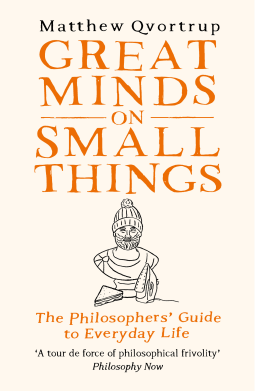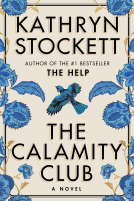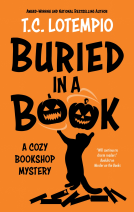
Great Minds on Small Things
The Philosophers' Guide to Everyday Life
by Matthew Qvortrup
This title was previously available on NetGalley and is now archived.
Send NetGalley books directly to your Kindle or Kindle app
1
To read on a Kindle or Kindle app, please add kindle@netgalley.com as an approved email address to receive files in your Amazon account. Click here for step-by-step instructions.
2
Also find your Kindle email address within your Amazon account, and enter it here.
Pub Date 5 Oct 2023 | Archive Date 15 Mar 2024
Talking about this book? Use #GreatMindsonSmallThings #NetGalley. More hashtag tips!
Description
How to Be Perfect meets The Daily Stoic in this witty, entertaining, highly giftable compendium of quotidian wisdom
Three centuries ago, François-Marie Voltaire published his Dictionnaire philosophique, taking in such idiosyncratic topics as adultery, mountains, nakedness, and others besides. In 1957, another French philosopher of more recent vintage, Roland Barthes, mused in his Mythologies on the masculine pursuits of wrestling, striptease and the Citroën DS. Since the dawn of philosophy, the world's great thinkers have been unable to resist the lure of applying their formidable brains not only to the meaning of life, but also to the meaning of coffee, trapped wind or efficient boiler installation.
Now, from Wollstonecraft to Wittgenstein, Laozi to Locke, Aristotle to Arendt, Great Minds on Small Things brings together their varied observations, alongside delightful black and white illustrations, in a highly entertaining and eye-opening miscellany that is guaranteed to make life’s mundanities suddenly seem a lot more highbrow.
Advance Praise
'A tour de force of philosophical frivolity that enlightens as well as entertains' Philosophy Now
'A tour de force of philosophical frivolity that enlightens as well as entertains' Philosophy Now
Available Editions
| EDITION | Hardcover |
| ISBN | 9780715654965 |
| PRICE | £12.99 (GBP) |
| PAGES | 224 |
Available on NetGalley
Average rating from 22 members
Featured Reviews
 Flo J, Educator
Flo J, Educator
Great minds on small things is an absolutely clever and interesting book to read. The concept is quite unique, Mathew Qvortrup, a real expert in philosophy, takes us on a ride through the alphabet to discover what philosophers from any time, anywhere wrote about ... mundane topics. Consequently, the reader keeps being surprised by the topics, which are not about life and death, but more about anything we drink or do in everyday life. Hence, the fascination of the reader because it is crafted with so many skills. This is a book to keep forever in one's library and to enjoy and share !
All opinions are mine, thank you to the author and NetGalley.
 Lisa D, Reviewer
Lisa D, Reviewer
This book cracked me up. It could have gone further, but it was hilarious to think what serious philosophers think about topics like farting. This would probably be a great book for young people to learn about important philosophers or a great coffee table book.
Thanks to NetGalley for letting me read this
This is a unique collection of sayings, remarks, and thoughts on the mundane aspects of life from some of the most renowned philosophers in history. The format of this book is like a dictionary, which adds an intriguing twist.
While some may perceive this endeavor as frivolous or pointless, I believe it offers an opportunity for both entertainment and introspection. This book not only presents musings that provoke reflection and philosophical pondering, but also delves into broader debates and discussions. It appeals to those seeking something beyond the ordinary, yet still holds a deep appreciation for the eccentric and brilliant minds that have shaped our world of ideas over the centuries.
Occasionally, these great thinkers venture beyond their usual topics and share their wisdom on unexpected subjects such as vegetables (Wittgenstein), buildings (Heidegger), food (Hobbes), wine (Locke), and even feces(Plato). More than two hundred and fifty years ago, the French philosopher Voltaire published his Dictionnaire Philosophique (1764), which courageously explored adultery, mountains, nakedness, and numerous other seemingly unphilosophical matters. Another noteworthy French philosopher Barthes continued this tradition in his book Mythologies (1957), offering philosophical insights on topics as wide-ranging as striptease, wrestling, and the innovative Citroën DS of that time.
This compilation brings together the diverse thoughts of these intellectual giants, enlightening us on life's small but significant aspects, including makeup, zealots, sex, farts, cats, coffee, beer, and bees.
This book is delightful, providing concise and captivating reads on various subjects, and serving as an introduction to these esteemed philosophers.
It's a great book for anyone, regardless of their background or interests.
Absolutely adorable, full of quick reads on direct topics, a fun introduction to a bunch of philosophers.
From dogs to hiccups to quiche and more, this well written compendium details the thoughts of famous philosophers on a wide range of subjects.
Interesting and entertaining, it's a great little book to refer to on the daily or just when you want a bit of unique trivia beyond the usual philosophical quotes that have done the rounds ad nauseum
This book was kindly given to me by NetGalley and my review is left voluntarily
 Bernie G, Reviewer
Bernie G, Reviewer
This book was inspired by Voltaire's "Philosophical Dictionary," a collection of essays by the French polymath put out in several editions and which covered topics such as: "Adultery," "Free Will," "Kissing," and "Nakedness." In some ways, the inevitable comparison that results from such a "reboot" as this proves the connection between the books to be apt. But in at least one sense, the comparison is unfortunate.
On a superficial level, comparison is apt. Not only does this book expound upon a range of alphabetized topics, often of an "everyday" nature, but it uses many of Voltaire's topics. It should be noted that Qvortrup's book also includes many topics that Voltaire didn't address, notably topics such as "cars" that didn't exist in Voltaire's day. One difference that benefits the book greatly is that (as the title suggests,) Qvortrup's book draws on ideas of a wide range of thinkers, mostly philosophers but also artists of a philosophical bent. [Whereas, Voltaire's book is a single-point of view, his own.] The "great minds" in this book range from the ancient world to that of the present. While it is (by the author's admission) Western-centric, it does reference Eastern thinkers (e.g. Taoists and Buddhists) more than many books I've read that weren't as self-aware of their own Eurocentrism.
Where the comparison to Voltaire's dictionary is not so apt is that Qvortrup's book rarely mixes wit and stimulation in the way for which Voltaire had a genius. This doesn't mean Qvortrup's book isn't witty or thought-provoking, but just that it's rarely both, simultaneously. In dealing with a topic like flatulence it can be witty but trivial, in expounding on the ideas of Kant it is intriguing but not usually amusing. That said, the book is laden with interesting ideas and insights into seminal thinkers that most people will find unexpected, if quirky. It is also the case that the overall tone of this book is lighter and more aimed at amusement than is Voltaire.
I found this book to be compelling, readable, and well worth the time, and would recommend it for readers of pop philosophy.
 Reviewer 1206814
Reviewer 1206814
An accessible, funny, and random guide to philosophy, in bite sizes. I appreciate that there's everything from Artichokes to Beer to Birthmarks here. I also like that it doesn't have to be read in order, lets me jump around without missing things. Thanks for the ARC!
A fun lighthearted book which makes for an ample gimmicky gift for those with a basic interest in philosophy/philosophers. I was mildly entertained throughout. For what it is, it does the job.
I didn't know there were so many Philosophers until I read this book and laughed at some of the insights they had on things such as birthmarks, buildings, breakfast and bread-if you get this please read about cats, because it's hilarious how a group of people can disagree on everything but the feline!
I love this and the humor and research that went into this makes this quite the read.
Thanks Netgalley for the eARC.
 Reviewer 266180
Reviewer 266180
Philosophical Musings Miscellany..
An eclectic and engaging miscellany of philosophical musings on the smaller things in life. Great minds on the little things. Amusing and entertaining, packed with little gems of worldly wisdom and quotable snippets - perfect to drop in on conversations! Nicely compiled and perfectly illustrated.
Readers who liked this book also liked:
Colm Tóibín
General Fiction (Adult), Literary Fiction, Novellas & Short Stories
Francesca De Tores
General Fiction (Adult)
Elizabeth Arnott
General Fiction (Adult), Historical Fiction, Mystery & Thrillers
Emer McLysaght and Sarah Breen
General Fiction (Adult), Mystery & Thrillers, Women's Fiction


















